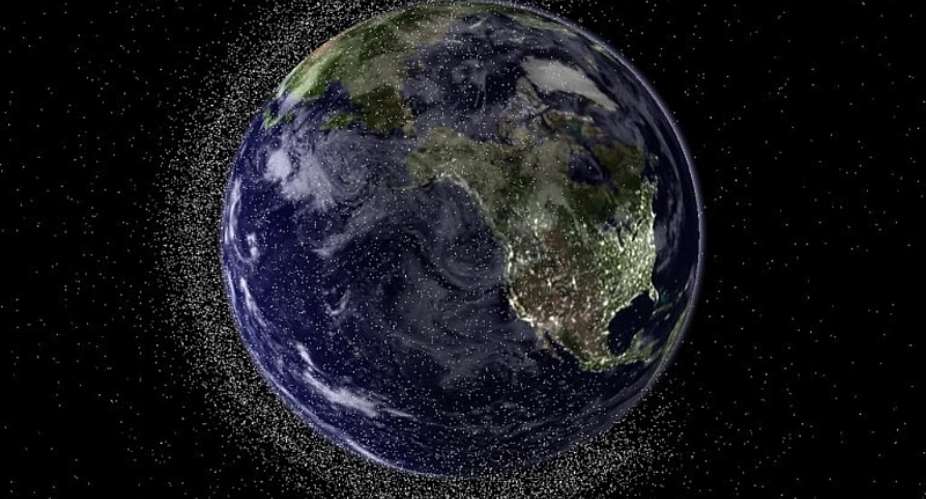For the third time this year, the International Space Station (ISS) carried out an avoidance manoeuvre that put it out of harm's way of a piece of debris that passed within 1.4 kilometers at a speed close to 30,000 km/hr on Tuesday.
“It could have been very dangerous. The debris may be very small, no more than a few millimeters thick but it can have a very big impact on the space station,” Pierre Omaly, space debris expert from the French space agency CNES told RFI.
The incident has again put the focus on the menace of space junk.
Space debris refers to fragments of objects such as satellites, rocket parts and missiles which are formed due to collisions, explosions or wear & tear.
These small pieces orbit the Earth at very high speeds. Situated in low earth orbits, they are categorised according to their size, with a tracking mechanism for those measuring more than 10 centimetres.
“There are 20,000 such objects that can be tracked. However, smaller objects whose size is more than 1 centimetre amount to 900,000 while the number of fragments more than 1 millimetre is 130 million which cannot be tracked,” Omaly said.
Objects larger than 1 cm have the potential to totally destroy satellites while debris more than 1mm can damage satellite equipment such as solar panels.
In 2016, a solar panel of the European Space Agency satellite Sentinel-1A was hit by a millimetre sized piece of debris causing a sudden small power reduction.
The problem of space debris has increased manifold in recent years due to the increase in the number of satellite launches. As a result, space agencies have been increasingly focusing on avoiding and managing space debris.
Some technological initiatives include the use of new materials that can withstand the shock of micro debris, developing debris removal systems and developing batteries that don't explode following an impact with space debris.
France has even passed a law related to space debris, becoming the first country to do so.
Some of the key elements of the French law include demonstrating objects sent to space won't explode, retirement of space objects after 25 years of service, and deactivating fuel tanks and batteries after the satellite retires.





 NDC demands complete overhaul of security protocols at EC to safeguard electoral...
NDC demands complete overhaul of security protocols at EC to safeguard electoral...
 Ghana reaches interim deal with international bondholders — Finance Ministry
Ghana reaches interim deal with international bondholders — Finance Ministry
 Mahama to form joint army-police anti-robbery squads to safeguard 24-hour econom...
Mahama to form joint army-police anti-robbery squads to safeguard 24-hour econom...
 Another man jailed eight months over shrinking penis
Another man jailed eight months over shrinking penis
 Ghana to adjust external bond deal to meet IMF debt sustainability goals — Finan...
Ghana to adjust external bond deal to meet IMF debt sustainability goals — Finan...
 IMF negotiations: We've not failed to reach an agreement with bondholders; we’ve...
IMF negotiations: We've not failed to reach an agreement with bondholders; we’ve...
 EC begins recruitment of temporary electoral officials, closes on April 29
EC begins recruitment of temporary electoral officials, closes on April 29
 NPP lost the 2024 elections in 2022 due to inflation and cedi depreciation — Mar...
NPP lost the 2024 elections in 2022 due to inflation and cedi depreciation — Mar...
 Your good heart towards Ghana has changed; don’t behave like Saul - Owusu Bempah...
Your good heart towards Ghana has changed; don’t behave like Saul - Owusu Bempah...
 Wa West: NDC organizes symposium for Vieri Ward Women
Wa West: NDC organizes symposium for Vieri Ward Women
